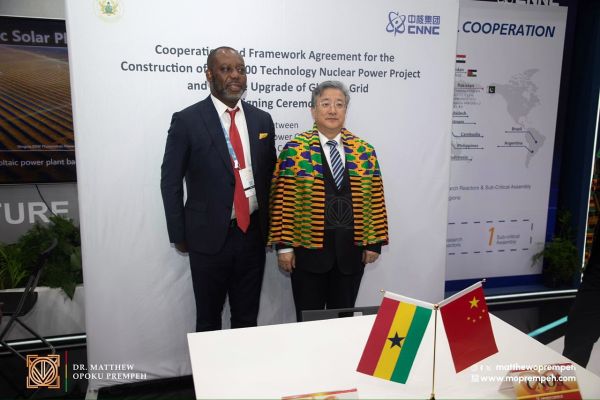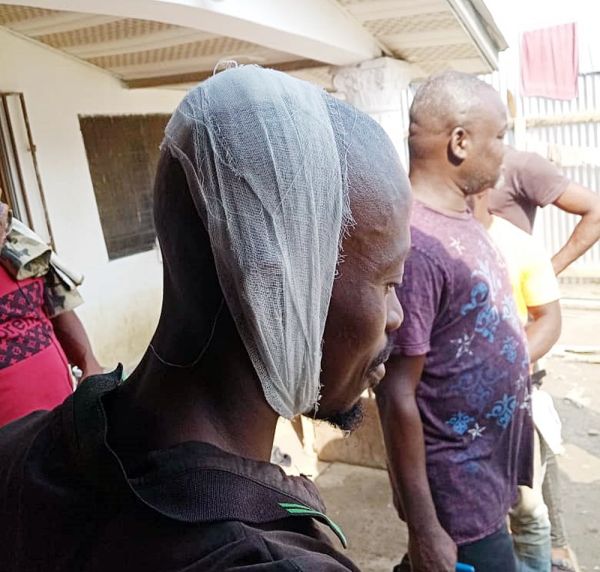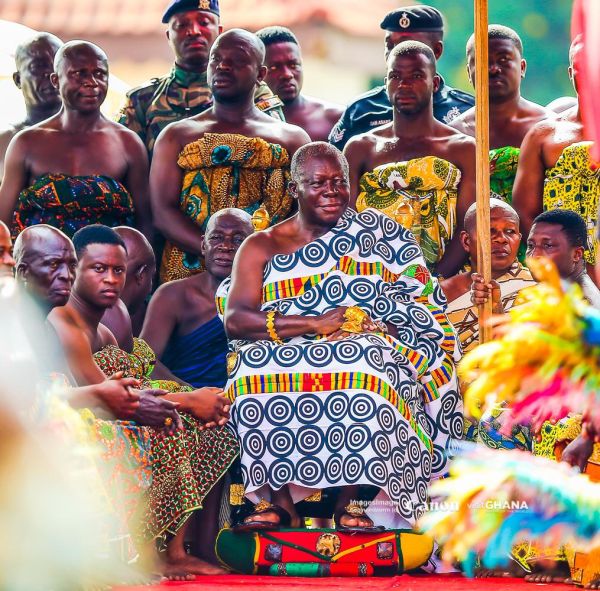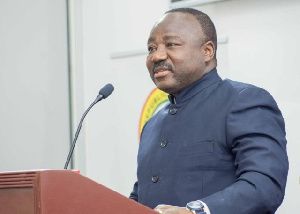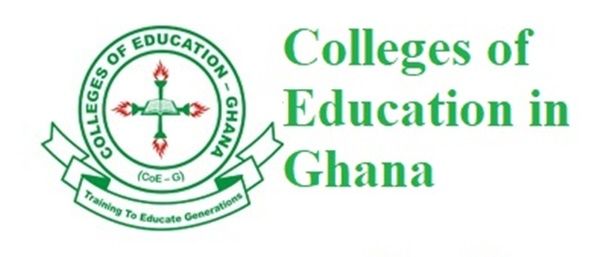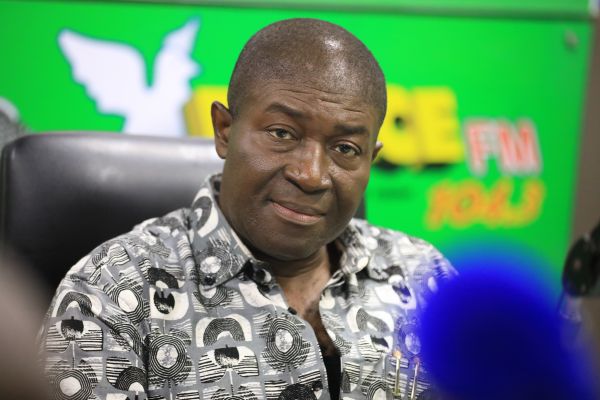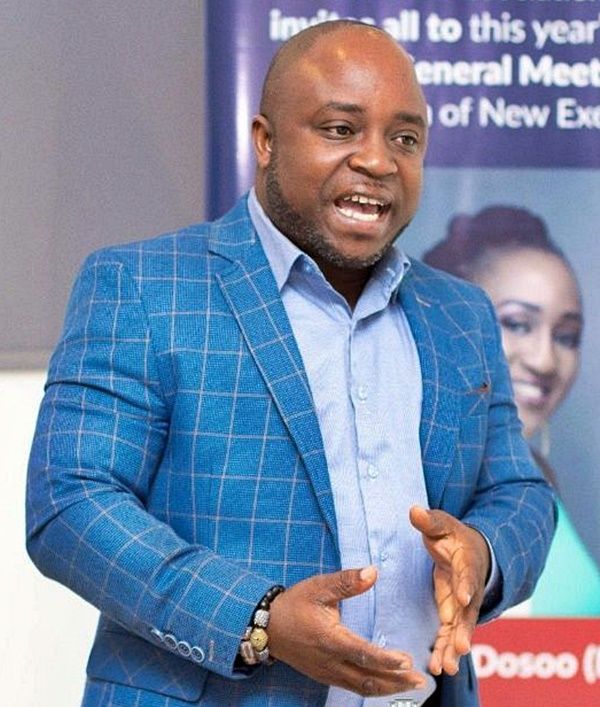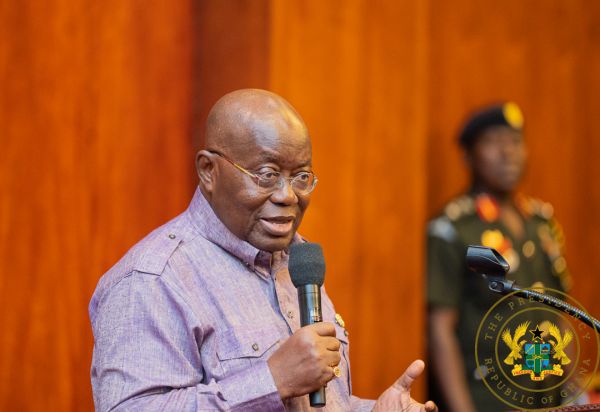
It was all smiles and jubilation when President Akufo-Addo commissioned the National Aquaculture Centre and Commercial Farms (NACCF) in Accra yesterday.
The one-of-a-kind facility, which is the latest addition of the numerous projects being undertaken by the Akufo-Addo-led NPP administration, combines state-of-the-art Recirculating Aquaculture System (RAS) technology, which provides water purification at the highest level available.
The centre, sited in Amrahia, will grow tilapia, catfish, and prawns, all of which are essential ingredients of the Ghanaian and West African diet.
Speaking at the ceremony, President Akufo-Addo said this will be a major boost to the government’s quest to enhance food security in the country, describing the project as yet another milestone in government’s effort to develop the fisheries and aquaculture sector.
That, he said, was evident in the fact that it is estimated that some 3 million people are employed along the entire value chain of the fisheries and aquaculture industries whilst 60% of the nation’s annual protein is derived from the fishing sector.
He, therefore, noted that “it contributes about 11% of agriculture’s GDP, and it employs about 20% of our nation’s workforce through direct and indirect means.”
Last year alone, Ghana is said to have earned some US$254 million from the export of fish and fish products.
Sadly, the President said “our marine stocks face significant threats in the form of pollution, biodiversity loss, ocean dumping, overfishing, and other maritime threats, including over-exploitation, illegal unreported and unregulated fishing, piracy and trafficking.”
These avoidable threats, he said, affect not only the livelihoods of millions of people, but also food security prospects, critical infrastructure, and the ecosystem.
To address the problem of dwindling catches from the sea and increasing demand for fish, President Akufo-Addo noted that his “government in 2019 in recognition of the aquaculture sub-sector, granted approval for the implementation of the greenhouse aquaculture technology system to help increase domestic fish production, to increase expertise in aquaculture and to create jobs for the youth, which saw the sod cutting for the project in 2021.
He, therefore, noted “the aim of the centre is to produce fish products and create employment through the training of the local population as fish farmers with emphasis on graduates from our universities.”
The centre complements the Ministry of Fisheries and Aquaculture’s development programme, “Agriculture for Food and Jobs” and reaffirms government’s determination to reduce graduate unemployment in the country.
Modern Technologies
According to the President, as “water bodies dry up and become polluted due to human activities and as the pressure on land acquisition increases, modernisation of aquaculture must involve the utilisation of less space of water but at the same time, must increase productivity”.
The Minister for Fisheries and Aquaculture, Mavis Hawa Koomson, on her part, said the centre is the first of its kind in Ghana.
She expressed appreciation to the project contractors, Agritop Limited, and the consultants, ABA and Partners, for the timely completion of the project.
Meanwhile, she said the ministry has prepared a new Ghana National Aquaculture Development Plan to be implemented between 2023 and 2027 for the sustainable development of the aquaculture sub-sector.
The implementation of the plan is expected to improve aquaculture production from 89,376 metric tons in 2021 to 211,697 metric tons by the end of 2027.
She, therefore, noted that “the operationalisation of the sector will also help to improve the implementation of the Aquaculture for Food and Jobs initiative being spearheaded by the ministry by providing the needed practical training to beneficiaries of the initiative to improve their skills and capacities.”
The NACCF Project
As part of the centre, a tailor-made model has been developed in which 90 students (per annum) will be trained (three months per student), theoretically and practically, on the operations of an aquaculture farm.
After graduation, the students will be granted the possibility to operate part of the farm on a leasing (cooperative) model, thus enabling them to implement their training and knowledge on a commercial level without the necessity to invest capital in starting their own operation.
The project was built on a “Design and Build” basis by MS Agritop Limited, and the Employer’s representative is M/S ABA Partners. Agritop will operate the farm and train students for two years.


